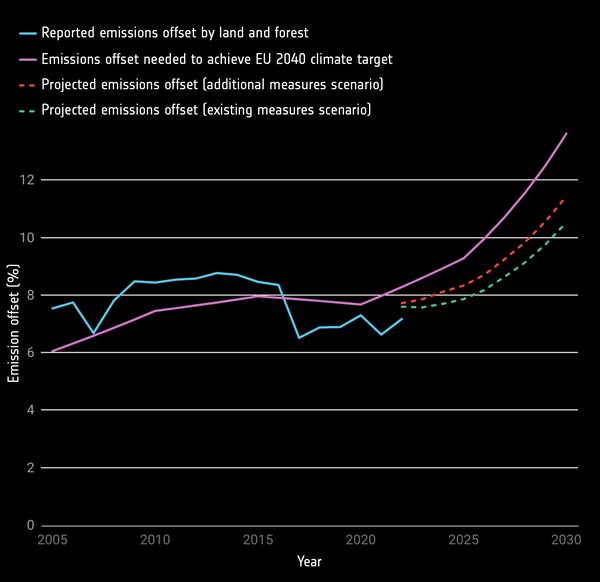
Europe’s forests play a vital role in absorbing carbon dioxide from the atmosphere, but their ability to act as a carbon sink is decreasing. A recent article in Nature, based on research led by the European Commission’s Joint Research Centre explores the reasons behind this decline. These include increased harvesting, ageing forests and the impact of climate change, such as droughts and wildfires.
Co-authors of this article include researchers from the RECCAP-2 project, which is part of the European Space Agency’s (ESA) Climate Change Initiative. The report highlights the valuable role of Earth observation in supporting informed decisions on forest management and climate action.
A series of studies by the RECCAP-2 project team have reported similar findings of a weakening land carbon sink, underlining the importance of monitoring not only living vegetation but also deadwood and other non-living carbon stores. These insights, supported by satellite data and modelling, underscore the need for comprehensive climate policy development to achieve the EU’s climate goals.
Read on to find out how ESA CCI research is supporting efforts to safeguard Europe’s forests as a natural climate solution: https://www.esa.int/Applications/Observing_the_Earth/Space_for_our_climate/A_troubling_shift_in_Europe_s_forest_carbon_balance

